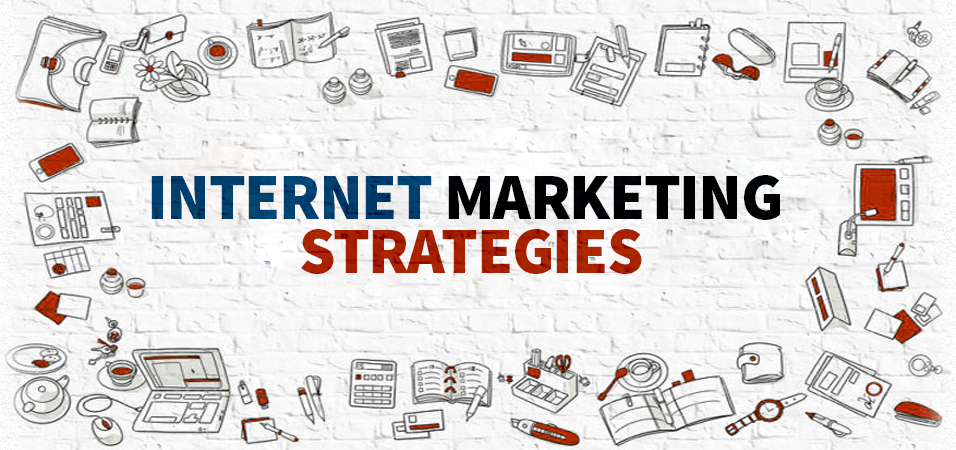In today’s digital age, internet marketing has become crucial for businesses to succeed and remain competitive. The significance of Internet marketing lies in its ability to attract and engage a vast audience, regardless of geographical boundaries.
However, it’s essential to understand that marketing strategies for B2B and B2C businesses differ significantly, and a one-size-fits-all approach may not be effective.
In this article, we’ll explore the best Internet marketing strategies for both B2B and B2C businesses in the USA, considering the competitive landscape of Internet marketing.
Search Engine Optimization (SEO) Strategies
Search Engine Optimization (SEO) is a crucial aspect of digital marketing for both B2B and B2C businesses.
By implementing the right SEO strategies, businesses can improve their online presence, increase website traffic, and generate more leads and revenue.
On-Page SEO:
1. Keyword Research and Optimization:
Conducting keyword research is essential for both B2B and B2C businesses to identify relevant keywords and phrases that their target audience is searching for. According to a study, long-tail keywords account for 70% of all search traffic, making them an important element of any SEO strategy.
2. High-Quality Content Creation:
Creating high-quality content is crucial for both B2B and B2C businesses. According to a survey, B2B marketers who use blogs generate 67% more leads than those who do not.
Similarly, B2C businesses that regularly publish high-quality content can establish themselves as thought leaders and attract more customers.
3. Meta Tags and Descriptions:
Meta tags and descriptions provide search engines with information about a website’s content. By optimizing them with relevant keywords, businesses can improve their click-through rates.
4. URL Structure Optimization:
Optimizing URL structures can improve the user experience and help search engines better understand a website’s content. Businesses should use descriptive, keyword-rich URLs that are easy to read and understand.
Off-Page SEO:
1. Link Building Strategies:
Link building is an essential off-page SEO strategy that can help businesses improve their website’s authority and ranking on SERPs.
2. Social Media Signals:
Social media signals, such as likes, shares, and comments, can help businesses improve their online presence and brand visibility. By sharing high-quality content on social media platforms, businesses can attract more followers and drive more traffic to their website.
3. Influencer Collaborations:
Collaborating with influencers can help businesses reach a wider audience and improve their brand awareness.
4. Online Reputation Management:
Online reputation management involves monitoring and managing a business’s online reputation. By responding to customer reviews and feedback, businesses can build a positive online reputation and attract more customers.
Content Marketing
Content marketing has become essential to internet marketing strategies for both B2B and B2C businesses. It involves creating valuable, engaging content that attracts, educates, and retains the target audience.
One way to create engaging content is through blog posts that allow you to showcase your expertise, share industry news, and provide helpful tips to your audience.
Infographics are another way to present complex information in an easy-to-understand format. They are visually appealing and can be shared on different platforms, making them a great option for content marketing.
Videos are also a great way to engage your audience. They can be used for product demonstrations, tutorials, or even to showcase your company’s culture.
Whitepapers and eBooks are longer-form content pieces that allow you to dive deeper into a topic. They require more effort to produce, but they can be a great way to establish your authority and provide value to your audience.
Once you’ve created your content, it’s time to distribute it. That’s where the main difference comes between B2B and B2C marketing strategies.
Social media platforms are a great way to share your content with a wider audience. You can share your blog posts, infographics, videos, and other content on social media platforms to increase your reach.
Email marketing campaigns are another way to distribute content directly to your audience’s inbox.
Guest posting and partnerships are also great ways to reach new audiences and establish your authority in your industry. By collaborating with other businesses or influencers, you can reach their audience and introduce them to your brand.
Finally, content syndication involves republishing your content on other websites. This allows you to reach a wider audience and gain more exposure.
B2C-Specific Strategies
Following are some of the most common, and frequently used B2C-specific online marketing strategies:
E-commerce Optimization
E-commerce Optimization is a crucial aspect of B2C-specific online marketing strategies. B2C businesses can improve the user experience, increase conversions, and generate more revenue by implementing streamlined website navigation, mobile optimization, high-quality product images, product reviews and ratings, personalized recommendations, easy checkout process, and multiple payment options.
Flash Sales and Limited-Time Offers
When it comes to B2C online marketing, there are several effective strategies that can help optimize your e-commerce platform and improve customer retention. One such strategy is to offer flash sales and limited-time offers. By creating a sense of urgency, you can entice customers to make a purchase and take advantage of a great deal.
User-Generated Content
Another effective strategy is to incorporate user-generated content into your marketing efforts. By encouraging customers to share their experiences with your brand, you can build trust and credibility with potential buyers. This can also help increase engagement and build a community around your brand.
Loyalty Programs and Customer Retention
Finally, implementing a loyalty program can be a powerful tool for customer retention. By rewarding customers for their continued business, you can encourage repeat purchases and build a loyal customer base.
B2B-Specific Strategies
When it comes to online marketing strategies, B2B businesses need to take a different approach than traditional B2C businesses. Here are some of the most effective strategies that B2B businesses can use to reach their target audience and generate leads.
Account-Based Marketing (ABM)
First, there’s Account-Based Marketing (ABM), which is a super-targeted approach that focuses on engaging individual accounts or companies. Instead of going after a large audience, ABM targets specific accounts that are most likely to convert into customers. By creating personalized content and messaging for each account, businesses can establish a stronger connection with potential customers and improve the likelihood of conversion.
LinkedIn Marketing for B2B
Next up is LinkedIn Marketing for B2B. LinkedIn is the go-to social media platform for B2B businesses, with over 700 million users worldwide. By creating a strong presence on LinkedIn, businesses can establish themselves as thought leaders in their industry, connect with potential customers, and generate leads.
Webinars and Virtual Events
Webinars and virtual events are another great way for B2B businesses to engage their target audience and showcase their expertise. This helps businesses establish themselves as thought leaders in their industry, build trust with potential customers, and generate leads.
Building Trust through Thought Leadership
Finally, there’s building trust through thought leadership. Building trust with potential customers is a must-have for B2B businesses. One effective way to do this is by establishing thought leadership in your industry. By consistently providing valuable content, businesses can establish themselves as thought leaders in their industry, build trust with potential customers, and generate leads.
Conclusion
A well-rounded internet marketing strategy is crucial for businesses to succeed and remain competitive in today’s digital age. It’s critical to stay adaptable and innovative in their approach to attract and engage a vast audience, regardless of geographical boundaries.
By implementing the best internet marketing strategies for B2B and B2C businesses, such as Search Engine Optimization (SEO), Content Marketing, E-commerce Optimization, and more, businesses can improve their online presence, increase website traffic, and generate more leads and revenue.
Therefore, it’s essential for businesses to keep up with the latest trends and strategies in Internet marketing and stay flexible in their approach to achieve their digital marketing goals.






